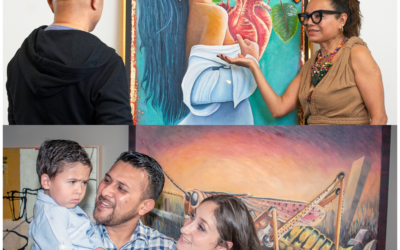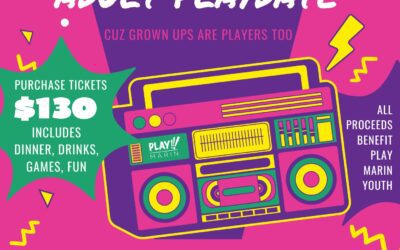Enjoy Mill Valley
Art Lovers to Descend on Mill Valley and Beyond for Marin Open Studios – May 4-5, May 11-12, 11am-6pm Each Day
Over 250 artists of every stripe including sculptors, pottery, abstract and figurative painters, photographers, textile, and jewelers to name a few are participating in the 2024 Marin Open Studios, including 22 new artists. “We are delighted to present another year of our much loved open studios and to help showcase the incredibly talented and diverse art community here in Marin County, ” said Kay Carlson, co-founder and executive director of Marin Open Studios.
City Officials and Local Developers are Coming to Grips with the Complexities of the City’s New Housing Element and Its Impacts on Developers Hoping to Build Our Way to State Mandates
In a Planning Commission Study Session earlier this month designed to allow commissioners and applicants to have a back-and-forth exchange without yet committing to a public hearing and thus a verdict on the proposal from the commission, Geiszler learned that his target is a moving one. “You’re the guinea pig,” Commissioner Jon Yolles said.
‘MVMF Teaser’ Concerts from MV Chamber & NoisePop Hit the Home Stretch With Deep Rivers on April 20 @ MVLY 11am-2pm, Sony Holland on April 27, 5-7pm, Sweetwater Music Hall Patio!!
‘MVMF Teaser’ Concerts from MV Chamber & NoisePop Hit the Home Stretch With Deep Rivers on April 20 @ MVLY, Sony Holland on April 27, 5-7pm, Sweetwater Music Hall Patio!! – MVMF on May 11-12!
Chamber Music Marin Presents Viano Quartet – May 5th, Followed By Marin Music Chest’s Young Artists Concert on May 19
The Viano Quartet aims to unite the dichotomy between collaborative and soloistic music making to create a voice that speaks both distinctly and as one cohesive force. They believe in uplifting the individual through dynamic teamwork and uncovering the personal nuances of collaboration to invigorate communities. Through a charismatic and fiery approach, their music tells a unique story that speaks authentically to each audience member and empowers a new generation of artists.
Happy Feet Dance School Presents ‘The Lullaby of Broadway – April 21st at Novato High School’s Center for the Arts
Happy Feet Dance School, a longtime stalwart arts organization in Mill Valley for decades, is producing three shows this year at Novato High School’s Center for the Arts, a beautiful indoor venue. The title of their show is, “The Lullaby of Broadway.” The events features a trio of performances on Sunday, April 21st: at 12pm, 3pm and 6pm.
Mill Valley Philharmonic Hosts Its Season Finale: Experience Paris Street Sounds, Operatic Drama, and Rhythmic Dance Tunes, All in One Concert – May 10, 8-9:30pm
On Friday, May 10 from 8-9:30pm at the Mt. Tamalpais United Methodist Church at 410 Sycamore Ave., experience Paris street sounds, operatic drama, and rhythmic dance tunes – all in one concert! Join them for favorites by Beethoven, Gershwin, and Glinka for an energetic and uplifting show!
Jennifer Eve Taylor’s JET ED Consulting, a Premiere Provider of Therapeutic Educational Consultative Services, Seeks to Get You the Best Options for Your Family’s Uniques Circumstances
Jennifer’s JET ED Consulting is the premier provider of therapeutic educational consultative services. Her mission is to provide the highest level of ethics and expertise in a caring and personal way, helping parents navigate the byzantine world of navigating what is often a misunderstood modality. Jennifer’s boys were in Mill Valley Schools and she was a member of It Takes a Village Mill Valley during those years.
Paul Austin’s Play Marin Hosts Players’ Night Adult Playdate, Featuring Dinner, Drinks and Plenty of Playtime – April 27th, 6-11pm at Sausalito Portuguese Cultural Center
Paul Austin: “When you come to our Players’ Night you can shoot buckets, flip cups, and dance your ** off! Enjoy wine/beer/bubbles and eat delicious snacks from Dee’s Organic Catering. Bid on an amazing variety of silent auction items – all while supporting a great organization benefiting Play Marin’s youth programs.”
Upcoming Events in Mill Valley
#enjoymillvalley
Mill Valley in the Media
THE MISSION OF THE MILL VALLEY CHAMBER OF COMMERCE
To foster a vibrant community, we promote, inform, engage, and advocate for our members. We do this by creating events and content, championing vitality and equity, coaching and connecting members to spark opportunity and continuously improve our organization.
Enjoy Mill Valley is your community hub for all things MV
Explore
Events
Explore Membership
Music Festival
2024
Advertise With Us
Mill Valley Chamber of Commerce & Visitor Center
85 Throckmorton Avenue
Mill Valley, CA 94941
415.388.9700
Hours
Tuesday, Thursday, Friday & Saturday
noon - 4pm
info@millvalley.org















